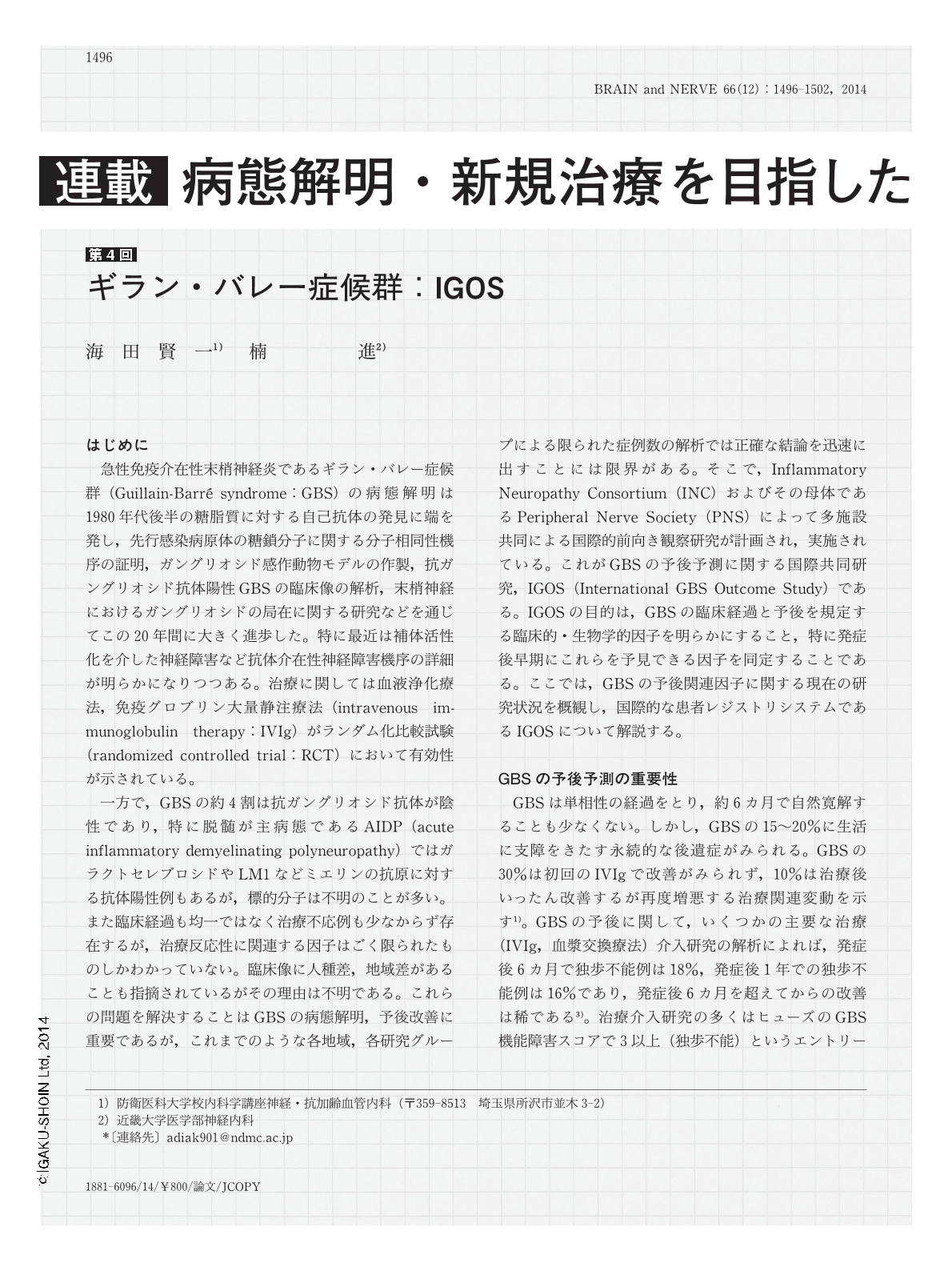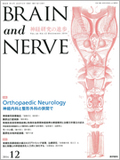Japanese
English
- 有料閲覧
- Abstract 文献概要
- 1ページ目 Look Inside
- 参考文献 Reference
はじめに
急性免疫介在性末梢神経炎であるギラン・バレー症候群(Guillain-Barré syndrome:GBS)の病態解明は1980年代後半の糖脂質に対する自己抗体の発見に端を発し,先行感染病原体の糖鎖分子に関する分子相同性機序の証明,ガングリオシド感作動物モデルの作製,抗ガングリオシド抗体陽性GBSの臨床像の解析,末梢神経におけるガングリオシドの局在に関する研究などを通じてこの20年間に大きく進歩した。特に最近は補体活性化を介した神経障害など抗体介在性神経障害機序の詳細が明らかになりつつある。治療に関しては血液浄化療法,免疫グロブリン大量静注療法(intravenous immunoglobulin therapy:IVIg)がランダム化比較試験(randomized controlled trial:RCT)において有効性が示されている。
一方で,GBSの約4割は抗ガングリオシド抗体が陰性であり,特に脱髄が主病態であるAIDP(acute inflammatory demyelinating polyneuropathy)ではガラクトセレブロシドやLM1などミエリンの抗原に対する抗体陽性例もあるが,標的分子は不明のことが多い。また臨床経過も均一ではなく治療不応例も少なからず存在するが,治療反応性に関連する因子はごく限られたものしかわかっていない。臨床像に人種差,地域差があることも指摘されているがその理由は不明である。これらの問題を解決することはGBSの病態解明,予後改善に重要であるが,これまでのような各地域,各研究グループによる限られた症例数の解析では正確な結論を迅速に出すことには限界がある。そこで,Inflammatory Neuropathy Consortium(INC)およびその母体であるPeripheral Nerve Society(PNS)によって多施設共同による国際的前向き観察研究が計画され,実施されている。これがGBSの予後予測に関する国際共同研究,IGOS(International GBS Outcome Study)である。IGOSの目的は,GBSの臨床経過と予後を規定する臨床的・生物学的因子を明らかにすること,特に発症後早期にこれらを予見できる因子を同定することである。ここでは,GBSの予後関連因子に関する現在の研究状況を概観し,国際的な患者レジストリシステムであるIGOSについて解説する。
Abstract
The prognosis for Guillain-Barré syndrome (GBS) is not as good as might be expected. To define biomarkers for disease activity and recovery and to develop prognostic models to predict the clinical course and outcome in individual patients with GBS, the Inflammatory Neuropathy Consortium (INC), supported by the Peripheral Nerve Society (PNS), has conducted the International GBS Outcome Study (IGOS) since March, 2012, which is a worldwide prospective survey aiming to register at least 1,000 GBS patients. More than 500 GBS patients have been enrolled to date. IGOS will make it possible to better inform patients and relatives about the prognosis for GBS, to understand the mechanism of disease progression and recovery, and to conduct selective therapeutic trials to improve outcome in patients with poor prognosis.

Copyright © 2014, Igaku-Shoin Ltd. All rights reserved.


